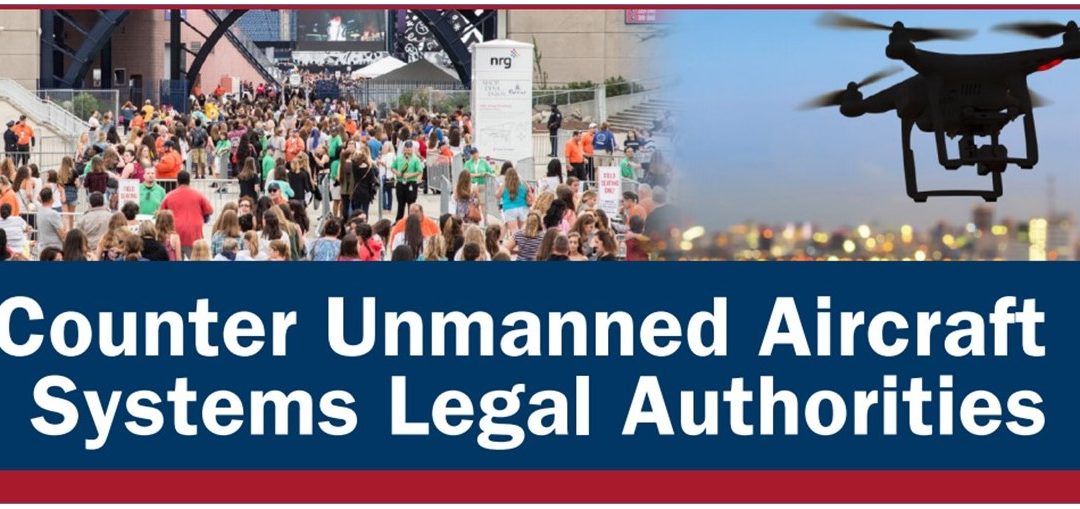Law Allows U.S. DHS to Jam, Spoof Drones
RNTF Report
The Department of Homeland Security recently published a fact sheet outlining its authorities to take action against “unmanned aircraft systems.” It describes them as “Disrupt control of the unmanned aircraft system or unmanned aircraft” and “Seize or exercise control of the unmanned aircraft system or unmanned aircraft.”
These authorities come from the “Preventing Emerging Threats Act” which was passed in January of last year as Section 1601 of the 2018 Federal Aviation Administration Authorization Act (note the link to the legislation in the fact sheet is incorrect).
The act says that DHS may:
 “(C) Disrupt control of the unmanned aircraft system or unmanned aircraft, without prior consent, including by disabling the unmanned aircraft system or unmanned aircraft by intercepting, interfering, or causing interference with wire, oral, electronic, or radio communications used to control the unmanned aircraft system or unmanned aircraft.
“(C) Disrupt control of the unmanned aircraft system or unmanned aircraft, without prior consent, including by disabling the unmanned aircraft system or unmanned aircraft by intercepting, interfering, or causing interference with wire, oral, electronic, or radio communications used to control the unmanned aircraft system or unmanned aircraft.
“(D) Seize or exercise control of the unmanned aircraft system or unmanned aircraft.
“(E) Seize or otherwise confiscate the unmanned aircraft system or unmanned aircraft.
“(F) Use reasonable force to disable, damage, or destroy the unmanned aircraft system or unmanned aircraft.”
The department’s authority to do this kind of work is limited to protection activities for major national events, other mass gatherings when requested by governors, and in support of active law enforcement, emergency response and limited duration security operation.
The act also requires DHS to coordinate with the Department of Transportation and issue guidance about how “Counter Unmanned Aircraft Systems” operations should be conducted, and to coordinate the actual operation with the FAA.
Federal law enforcement authorities have long been exempt from the Communications Act prohibitions related to jamming and spoofing. For example, it is well known that jamming and other electronic transmissions not allowed for others have been used as part of VIP protection for years. So we would have thought that this provision of the law would be unnecessary.
Also, while this kind of activity by federal enforcement authorities has been fairly common, it has also been something that has not been talked about openly.
Perhaps this is all part of an effort to help deter rouge drone operations by making DHS’s authorities crystal clear and better known.


